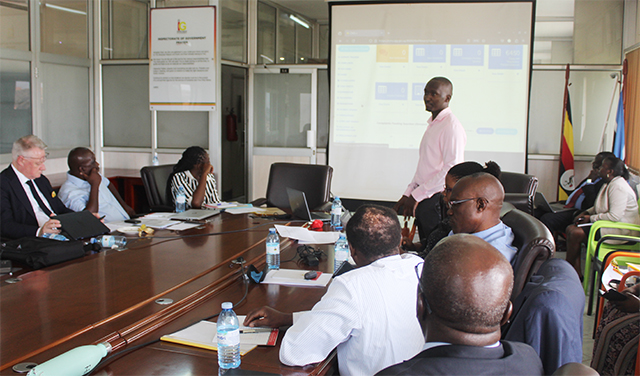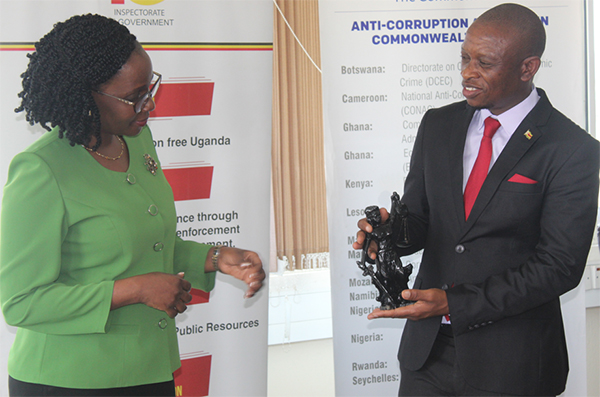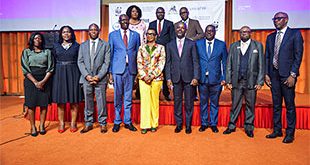
Kampala, Uganda | THE INDEPENDENT | A delegation from the Zimbabwe Human Right Commission (ZHRC) has concluded a three-day learning visit to Uganda, with a commitment to tap into the technical skills of the Inspectorate of Government (IG) to automate their systems back home.
This followed a session on Tuesday afternoon, where the Zimbabweans were shown a Content Management System (CMS) developed by the Information Technology (IT) team at Uganda’s Inspectorate of Government (IG).
The system, locally developed, keeps track of all cases handled by all officials across the country. It registers cases and sends out notifications on the status of each case, and, gives top management an overview of the entire operation at the IG’s office.
Visiting Head of Delegation, Commissioner, Eng. Martin Muduva noted the importance of automation, especially when faced with staffing problems and challenged his Ugandan counterparts to look into the role Artificial Intelligence (AI) can play in raising the performance of the CMS. He said ZHRC would consider signing knowledge transfer pacts with their Ugandan counterparts.
As part of their three-day visit, the Zimbabweans also benchmarked with the IGG’s office on the Ombudsman function. They spent two days engaging with various IGG officials led by Deputy IGG Anne Twinomugisha Muhairwe and Director Ombudsman Affairs Kakooza Savio Ntensibe.
Discussions focused on best practices to uphold the rule of law and fight corruption, plus the use of alternative dispute resolution for administrative justice. The delegation also paid a courtesy call on the Uganda Human Rights Commission (UHRC) and the Equal Opportunities Commission (EOC).


Role of the Ombudsman
An ombudsman is an independent official who investigates and resolves complaints against government agencies, employers, or other organizations. The Uganda Ombudsman function is established under Article 225 of the 1995 Constitution of the Republic of Uganda and the Inspectorate of Government Act of Uganda.
The Zimbabweans were briefed on how the Inspectorate of Government (IG) is advocating for the establishment of Sectoral Ombudsmen in public offices in a bid to effectively reinforce adherence to the rule of law.
A sectoral Ombudsman is an independent body that would help to promote accountability and transparency in specific public offices. They can address complaints, provide referrals, improve internal responses, generate trust and prevent future cases among others.
Currently, the IGG Beti Kamya Turwomwe is the national Ombudsman of Uganda and handles all Ombudsman-related complaints under Article 225 (1) (a) of the Constitution.
The IG’s office argues that once sectoral ombudsmen are established within public institutions to handle complaints, it will ease the IG’s work. However, consultations will first be made among the relevant stakeholders before implementation.
Examples of Ombudsman complaints include among others nonpayment of benefits such as salary, pension and gratuity, employment disputes such as irregular recruitment, interdiction, unfair termination or victimization, abuse of authority, mismanagement and delay in service delivery.
However, the IGG doesn’t handle a complaint which has already been decided by a Court or a tribunal established by law, a case which is before a court by the time the complaint is filed, and a complaint of private nature for instance a loan recovery.
 The Independent Uganda: You get the Truth we Pay the Price
The Independent Uganda: You get the Truth we Pay the Price


